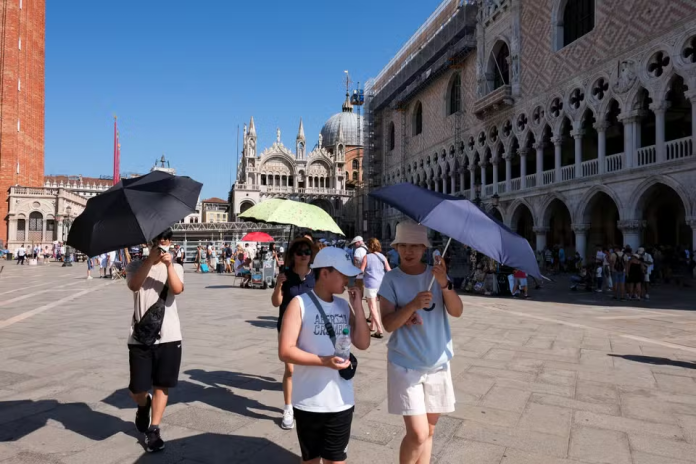The historic squares and canals of Italy, long revered as cultural treasures, have become hunting grounds for criminal gangs targeting tourists with alarming sophistication.
Former Prime Minister Giuseppe Conte issued an impassioned plea on social media platform X this week, declaring: “Let’s send a signal immediately, no more wasting time” amidst growing national outrage over rampant street crime.
Conte, leader of the Five Star Movement (M5S), detailed disturbing tactics employed by thieves: “gangs travelling to prey on tourists, pickpockets with irritant spray, even some professional pickpockets in version 2.0, with card readers.”
“In all our major cities, it has become a Wild West,” he declared on X.
His warning about Venice resonates particularly strongly, as “constant pickpocketing is sparking such frustration among citizens and tourists that there’s a risk of vigilante justice every day.” This urgent intervention highlights a crisis impacting both Italy’s global image and daily safety.
The former Premier attributes the surge partly to legislative weaknesses. He revealed his party had “repeatedly tried to amend” laws making victim complaints mandatory for prosecution, leaving police “currently powerless,” as this bureaucratic hurdle proves crippling when dealing with tourists who often leave Italy before legal processes begin.
“The current regulations blunt the weapons of justice against thieves and pickpockets without an explicit complaint from the victim,” Conte wrote.
While Italy maintains a relatively low violent crime rate globally, its homicide rate of 0.51 per 100,000 inhabitants is among Europe’s lowest, the explosion of opportunistic, non-violent theft presents a distinct challenge.
Organised crime’s shadow and legislative paralysis
Italy’s crime landscape remains profoundly shaped by sophisticated mafia groups. According to the Organised Crime Index, Italy ranks 3rd in Europe for criminality (score 6.22/10), with particularly high scores for cocaine trafficking (8/10), extortion (7.5/10), and human smuggling (7.5/10).
Conte vehemently criticised the current government’s approach. His M5S party has presented proposals aiming to empower law enforcement to act without requiring immediate victim complaints in clear cases of theft, a measure seen as crucial for tackling transient tourist crime.
“Instead of mocking citizens as the Government has done, which adopted a security decree full of slogans and restrictions on dissent, but empty of solutions,” Italy’s former PM stated.
However, the crisis extends beyond stolen wallets, as Italy scores poorly (5.5/10) on resilience indicators like victim support and witness protection. Human trafficking remains a grave concern, with vulnerable groups, including Ukrainian refugees, targeted for sexual exploitation and forced labour, particularly in agriculture and hospitality.
Traffickers increasingly use social media and private residences for recruitment, a trend accelerated by the pandemic.
Experts argue solutions require multi-layered strategies: enhancing police capabilities to combat cyber-enabled theft, reforming obstructive legal procedures, and crucially, disrupting organised networks profiting from human smuggling and trafficking, key entry points for those forced into petty crime.
Italy scores relatively well on international cooperation (9/10), but stronger cross-border policing is needed against gangs operating across Europe.
